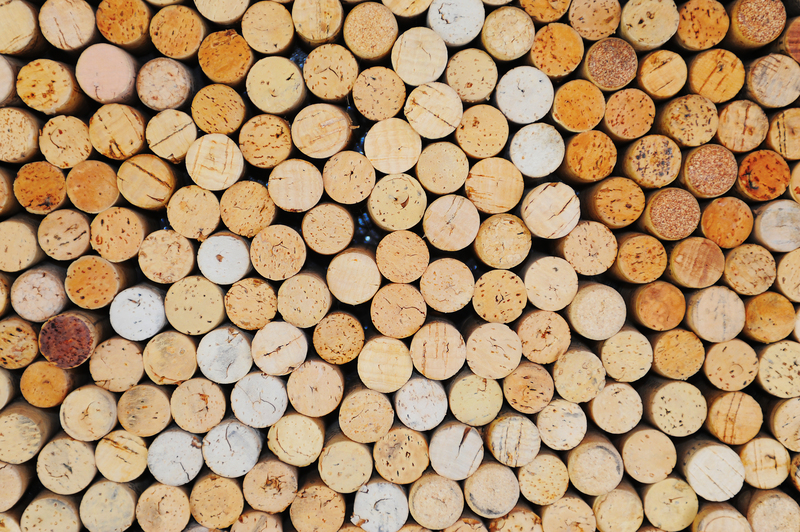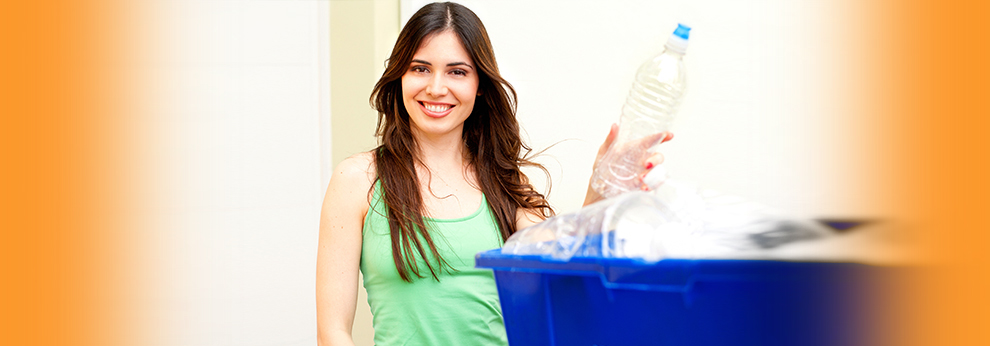Turning Recycling Into a Fun Family Activity
Posted on 04/10/2025
Turning Recycling Into a Fun Family Activity
Recycling is essential for reducing waste, conserving natural resources, and helping protect our planet. But let's face it--recycling at home can feel more like a chore than an adventure, especially for kids. What if you could transform eco-friendly habits into an enjoyable and educational experience for your whole family? In this guide, we'll share inspiring tips and creative ideas for turning recycling into a fun family activity. Not only will you get everyone involved, but you'll also help instill lifelong environmentally responsible habits.
Why Make Family Recycling Fun?
Today's world faces serious environmental challenges, but collective action--starting with our families--makes a real difference. When recycling becomes an enjoyable family ritual, it's far more likely to become a consistent habit. Children learn best through play and hands-on experiences, and adults are more engaged when activities feel rewarding rather than tedious. Having fun with family recycling also offers:
- Education: Kids and adults learn about waste, environmental impact, and sustainable living.
- Bonding: Family activities foster better communication and teamwork.
- Responsibility: Children develop a sense of ownership and responsibility for the planet.
- Creativity: Artistic and inventive approaches to recycling spark creativity.
- Lifelong Habits: Making recycling enjoyable encourages long-term sustainable behavior.

Getting Started with Recycling as a Family
Before jumping into activities, some preparation will help set your household up for recycling success. Here's how to lay the groundwork for your fun family recycling adventure:
1. Learn the Recycling Rules
Each community has its own recycling guidelines. Research which materials are accepted in your local recycling program. Involve your kids in this step--make it a scavenger hunt to find the rules online or contact your local waste management department together.
2. Designate a Recycling Zone
Create a dedicated, easily accessible recycling area in your home. Use colorful bins and decorate them with your kids. Label each bin (paper, plastics, metals, glass) clearly, using pictures for younger children.
3. Gather Supplies
- Multiple recycling bins or containers
- Labels or stickers
- Educational books or posters about recycling
- Safety gloves (for certain materials)
Now that your setup is ready, let's explore ways to turn recycling into family fun!
Creative and Entertaining Recycling Activities for Families
1. Recycling Sorting Races
Turn sorting recyclables into an exciting game. Collect clean, empty recyclables and set up sorting stations. Use a timer and race to see who can sort items correctly fastest. Variation: Blindfolded sorting, or include fun "wildcards" that don't belong--can your team spot the contaminants?
2. Upcycling Crafts and DIY Projects
Upcycling is all about transforming recyclable materials into new treasures. Get creative together:
- Toilet paper roll animals: Use paper rolls, paint, and googly eyes for adorable creatures.
- Plastic bottle planters: Cut bottles, decorate with markers, and plant herbs or flowers.
- Magazine collages: Cut out images/words and make family vision boards.
- Egg carton art: Paint and shape cartons into bugs, flowers, or vehicles.
- Glass jar lanterns: Use old jars, tissue paper, and tealights for cozy decor.
Share your masterpieces on social media or enter local eco-art contests!
3. Recycling Scavenger Hunt
Hide recyclable items around the house or yard, and give your kids a list of things to find. As they collect each item, ask them to identify which bin it belongs in. *Bonus: Add trivia questions or nature facts at each clue for extra learning!*
4. Family Recycling Challenge Chart
Create a colorful chart where everyone tracks what they recycle each week. Set collective goals, like "Fill the can/bottle bin by Sunday" or "Have a zero-waste day." Offer small rewards or celebrate with a "green family night" if goals are met.
5. Recycling Storytime or Movie Night
Combine entertainment with education by watching documentaries, cartoons, or eco-friendly movies together. Check out books like The Adventures of a Plastic Bottle or Michael Recycle, then discuss what happens to items we throw away. Ask kids to imagine: "If you were a recycled bottle, what would your new life be?"
6. Visit a Recycling Center
If possible, arrange a family trip to your local recycling facility. Seeing the process in action can be truly eye-opening for all ages. Afterwards, talk about what surprised you most and how you can improve your recycling habits at home.
7. Neighborhood Clean-Up Adventure
Take your family recycling activity outdoors by organizing a litter pick-up day. Turn it into a friendly competition: who can collect the most recyclables in the park or on your street? Make sure to wear gloves and separate recyclables from trash as you go.
8. Host a Recycled Materials Fashion Show
Gather recyclables--newspapers, plastic bags, bottle caps--and challenge your family to design wild and wacky outfits. Strut your stuff on a homemade runway, take pictures, and award titles like "Eco-Chic" or "Green Queen/King."
9. Recycling Board Games and Trivia Nights
- Create or find printable recycling-themed board games online.
- Invent a trivia night with questions about recycling facts and local sorting rules.
- Award prizes (like an extra story at bedtime or choosing dinner) for the winners!
How to Keep Kids Motivated About Recycling
Even the most exciting activities can lose their appeal if they feel repetitive. Here are strategies to keep family recycling enthusiasm high:
- Rotate roles (sorting champion, trash detective, creative upcycler) weekly.
- Praise progress, not perfection--celebrate both efforts and results.
- Invite friends or neighbors to join family recycling games for variety.
- Let children suggest new recycling challenges or upcycling projects--they'll be proud to see their ideas in action.
- Connect recycling to the bigger picture: talk about wildlife, oceans, or the future. Help kids see the impact of their actions.
Eco-Friendly Habits Beyond Household Recycling
While learning to sort and reuse is crucial, turning recycling into a family tradition can expand into other sustainable habits as well:
- Start composting food scraps together--kids love seeing waste turn into garden gold.
- Reduce single-use plastics by bringing reusable bags and bottles for family outings.
- Purchase items made from recycled materials or eco-friendly brands.
- Explore thrift shopping or swap events for clothes and toys.
- Encourage creative repair or repurposing instead of throwing items away.
FAQs About Making Recycling a Fun Family Experience
Is it really possible to make recycling fun for kids?
Absolutely! With age-appropriate games, storytelling, crafts, and rewards, even young children become passionate about sorting recycling and discovering creative ways to reduce waste.
What if we make a mistake with recycling?
Learning together is part of the journey. Use mistakes as teachable moments--double-check the rules, figure out what went wrong, and try again. Progress is more important than perfection.
How can we encourage our reluctant family members?
Lead by example enthusiastically. Pick activities that connect to their interests--art, competitions, stories, science. Involving everyone in planning gives all family members a sense of pride and ownership.
Can family recycling projects save money?
Yes! Upcycling reduces the need for new craft supplies, reusable containers lower packaging costs, and less landfill waste sometimes leads to reduced trash bills. It's a win for you and the environment.

Fun Family Recycling Activity Calendar: Month-by-Month Inspiration
If you're looking to keep your family's enthusiasm growing all year long, try planning a monthly recycling focus. Here are some ideas to add to your calendar:
- January: Make upcycled snowflakes or "new year, new use" crafts from packaging.
- April (Earth Month): Plant seeds in recycled containers and track their growth.
- June: Organize a summer beach or park clean-up picnic.
- September (Back to School): DIY pencil holders or book covers from recycled materials.
- December: Create eco-friendly holiday decorations and upcycled gift wrap.
Document your projects with photos and stories. You can even create a family "Eco-Heroes" scrapbook or share your journey online to inspire others!
Conclusion: Start Your Family's Recycling Adventure Today!
Recycling doesn't have to be dull or difficult. By turning recycling into a fun family activity, you'll foster teamwork, creativity, and environmental awareness in both children and adults. Remember, the habits you build today shape a greener tomorrow. Gather your family, gather your bins, and start making memories--and a difference--together!
Ready to begin your family's recycling adventure? Try one tip this week, track your progress, and enjoy the journey toward greener living--one fun activity at a time.
Let the Fun Recycling Begin!
Latest Posts
Expert tips on disposing of old chargers sustainably
Green Living Suggestions for Reducing Plastic Waste
How to Handle Uncollected Waste Bin Services
Innovative Practices to Reduce Household Waste
Harmonize Your Space: Stress Reduction through De-cluttering



